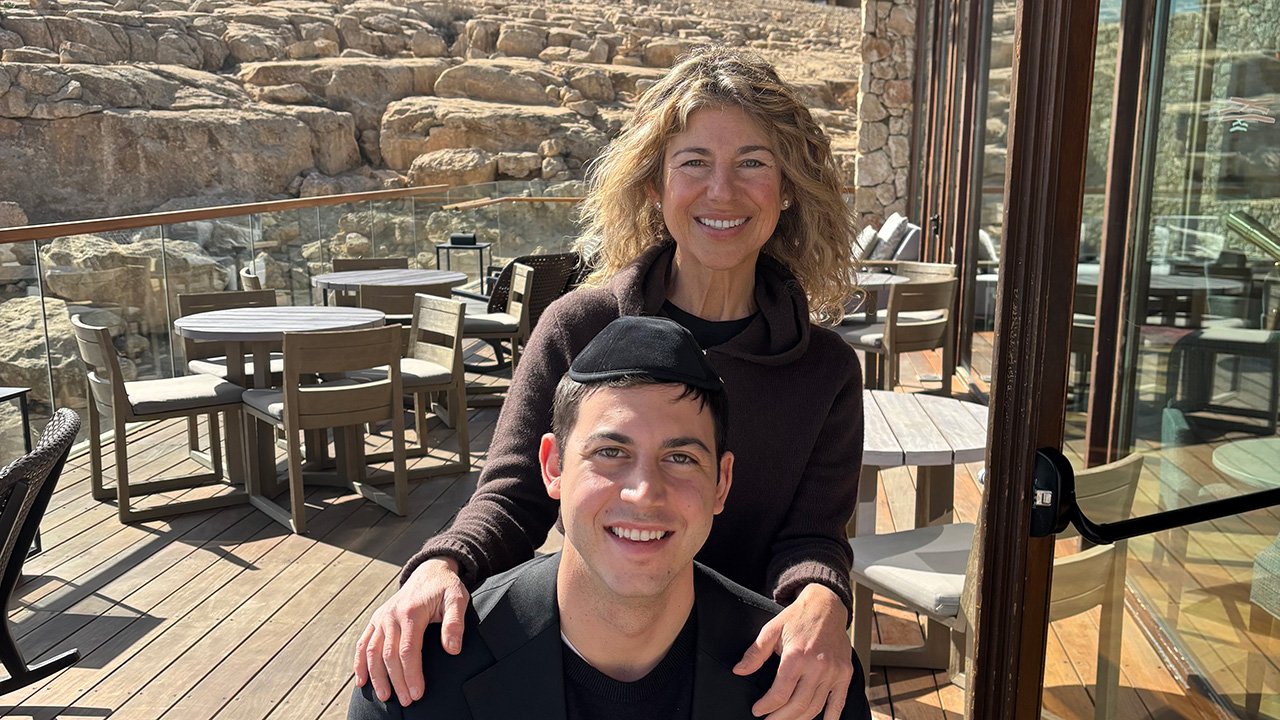My Parenting Guru
Let me start by sharing a truth about parenting I’ve come to believe in wholeheartedly:
“You can’t get it right.”
If humility is your destination, parenting is the most direct and effective path to get there.
Just when you think you got it right with one child, another comes along—and you quickly realize you may know nothing at all!
As a mother of two, I feel like it’s impossible to be a good parent to any more than that number of kids. But as a professional who thinks, writes, and works in the field of human potential, I can spot a false belief from a mile away—and this is definitely one of them.
I know this because every time I meet someone who has three kids, I’m deeply curious. But put me in front of someone who has more than three, and I practically lose my mind. The questions are endless, the core one, of course, being: “HOW do you do it?”
To be clear, by “it,” I mean good parenting—or more specifically, good enough parenting. Because the truth is, like any other activity, parenting can be done half-heartedly. It can be phoned in. The difference? You can’t get fired for not showing up fully as a parent, as you could from a “real” job.
But here, I’m talking about a parent who is all in.
How do they do it?
With so much to handle at once, how do they achieve parenting success? I’m not talking about raising flawless kids who follow the path we’ve set for them—kids who float through school with perfect grades and make us proud by becoming successful in all areas of life.
No, my friends. We can aspire to be the best parents possible, but we must remember that we’re not God, and we don’t have that much power.
My benchmark for parenting success is simple: Have we raised a young adult who is happy to be alive?
Before you accuse me of setting the bar too low, look around you. Many young adults in this generation are conflicted about what our generation took for granted—a sense of purpose and excitement about being alive.
So, yes, it would be phenomenal if all our dreams and wishes for what our kids should accomplish, who they should become, and what kind of life they should live came true. But parenting is about them, not us—and that’s why I’m sticking with my definition of success.
For the past three decades, I’ve been carefully, sometimes obsessively, observing a parent I’ll call Melissa. I’ve been profoundly inspired by Melissa’s thoughtful and wise example of parenting no less than seven kids. If she’s reading this blog, although I’ve changed her name, she will recognize herself. Her quiet humility will bar her from taking credit for her accomplishments, but even she cannot deny the profound wisdom she’s gained the hard way. Wisdom I’ve tried to infuse into my own parenting. Wisdom I hope you’ll find useful, maybe even life-changing.
There are so many, but I’ve chosen seven to share with you.
1. Be clear about your family values and devote (seemingly endless) time to discussing those values.
Values, by nature, have a “because I say so” element to them. They are to be accepted because we deem them important and non-negotiable, even if they don’t hold the same weight for another person or family. Our family values are personal, serving as the North Star we point our children towards. Therefore, communicating them in both our words and actions is pretty much our full-time job as parents.
Melissa not only lives her values, but she is also always open to having them challenged and questioned.
2. See each child as a separate individual, not a copy of your other child or an extension of yourself.
If communication is the core competency of raising kids with strong family values, curiosity, and radical acceptance are the qualities that enable us to see, speak to, and treat each child on their own merit.
3. Know that you are here as your children’s guardian, and they are here as your teachers.
The quality of character we need to draw on here is humility. If we are honest, most of us realize that our children are preternaturally wiser than we are. It’s as if they were born with a mission to teach us lessons we don’t want to learn and wouldn’t if they hadn’t come to teach us.
Melissa allows her children to be her teachers and has profoundly inspired me to do the same with the two souls that whip me into shape regularly!
4. Be able to see each child with an honest and critical eye.
This is not the same as being critical, which so many of us excel at with our children.
It’s about acknowledging the positive AND the negative qualities of each child without making it about us or a judgment of our parenting. Walking this delicate line between supporting and empowering our children as they are, and acknowledging their shortcomings for the sake of growth and character refinement, is not easy to do, but a crucial practice of good parenting.
5. Choose influence over control.
Control is cheap and short-term fuel. Moreover, once it runs out, it’s gone forever. This reality hits so many of us in the face once our children reach the stage of life where our systems of control no longer work. Control is a finite tool, but influence, borne from cultivating trust and communication, can last forever.
I’ve learned from Melissa that influence is quiet but powerful, while control is forceful and passing.
6. Admit your mistakes and forgive yourself!
Parenting is a long game. Undoubtedly, life (and your kids) will give you another challenge and therefore another chance to do better. This is one area I’ve noticed that having more kids supports this principle. The more kids you have, the less time there is to overthink, ruminate, and self-judge.
I’m not suggesting we all have more kids, but rather we all move forward with a measure of self-love as opposed to useless guilt.
7. Praise in public but rebuke in private.
Enough said.
Friends, although parenting is a common topic in life and leadership coaching, I always feel a bit of imposter syndrome when writing about it. I think this is because there are so many schools of parenting, and a part of me thinks, “Who are you to tell people how to raise their kids?”
And to that voice I respond, “It’s not me I’m talking about. It’s Melissa! And I know a great parent when I see one!”










